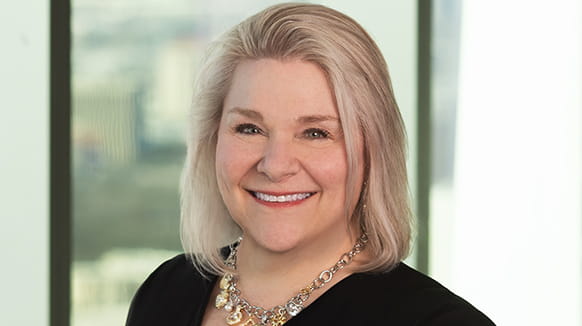The United States Department of Justice (“DOJ”) launched a one-year pilot program (the “Program”), effective April 5, 2016, incentivizing companies to disclose facts about corporate officers, supervisors, employees, and agents involved in violations of the Foreign Corrupt Practices Act (“FCPA”), 15 U.S.C. §§ 78dd-1, et seq.1 The FCPA makes it a crime for a U.S. citizen or entity, among others, to bribe a foreign official to gain a business advantage. The Program echoes the themes in the DOJ’s 2015 “Yates Memorandum,” which highlighted the DOJ’s renewed focus on individual accountability for corporate wrongdoing.2 Citing greater accountability for individuals and companies, the goal of the Program, according to DOJ’s Fraud Section Chief Andrew Weissmann, is to motivate “companies to voluntarily self-disclose FCPA-related misconduct, fully cooperate with the Fraud Section, and, where appropriate, remediate flaws in their controls and compliance programs.”
The Program’s fundamental carrot is potential mitigation credit. While the DOJ has historically stated it gives mitigation credit to companies that self-report FCPA violations, the Program seeks to articulate that benefit in written guidance in an effort to provide greater transparency. According to Assistant Attorney General for the DOJ’s Criminal Division Leslie Caldwell, transparency: (1) “enables the public to understand why particular results are reached in particular FCPA cases and helps to reduce any perception that our enforcement decisions may be unreasoned or inconsistent;” and (2) “informs companies what conduct will result in what penalties and what sort of credit they can receive for self-disclosure and cooperation with an investigation.”3 Because the DOJ plans to maintain focus on responsible individuals, the Program’s credit is only available to companies.4
To be eligible for mitigation credit under the Program, the DOJ will require companies, at a minimum, to disgorge all profits resulting from the alleged FCPA violation, to cooperate, and to remediate any misconduct timely and appropriately. Beyond those requirements, the Program delineates two levels of available credit—a limited credit (where a company has not voluntarily disclosed its FCPA misconduct) and a full range of potential mitigation credit (where a company has voluntarily disclosed). A limited credit affords a company “at most a 25 percent reduction off the bottom of the [U.S.] Sentencing Guidelines fine range.” A full credit affords a company “up to a 50 percent reduction off the bottom end of the Sentencing Guidelines fine range” and generally avoids “appointment of a monitor if a company has, at the time of resolution, implemented an effective compliance program.”5
To qualify as a “voluntary self-disclosing entity,” a company must: disclose prior to an imminent threat of disclosure by others or of a government investigation; disclose within a reasonably prompt time after becoming aware of the offense; and disclose all relevant facts, including individual involvement in any FCPA violation.
“Full cooperation” requires, among other things: divulgence of facts about criminal activity by officers, employees, and agents; proactive steps, such as identifying relevant evidence not in the company’s possession and not otherwise known to the government; production of relevant documents and information regarding their origin; institution of internal investigations appropriately tailored in scope and rolling disclosures of the results; identification of criminal conduct by third-party companies or individuals; making persons available for interviews, including those located overseas; attribution of facts to specific sources of information versus providing a general narrative; and assistance with obtaining evidence in foreign jurisdictions.6 According to the DOJ, none of these requirements, however, demands waiver of the attorney-client privilege or work product protection.
Finally, “remediation” requires: implementation of an effective compliance and ethics program that, among other things, establishes a culture of compliance, dedicates sufficient resources and personnel, operates independently, and is audited; appropriate disciplinary measures for individual misconduct, including inadequate supervision; and additional measures to demonstrate acceptance of responsibility for misconduct and to reduce repetition, such as identifying future risks.
The Fraud Section also announced that it is increasing the number of attorneys in its FCPA unit by more than 50 percent. And prosecutors will continue to work closely with the Securities and Exchange Commission (“SEC”), special squads of FBI agents devoted to FCPA investigations, and international law enforcement counterparts in the DOJ’s FCPA enforcement strategy.
The Program encourages companies to point the finger at company officers and supervisors, who cannot obtain any mitigation protection under the Program, in exchange for leniency to the entity. Thus, executives should continue to remain mindful of the DOJ’s renewed focus on prosecuting individuals. They should also ensure that their compliance programs are robustly designed and regularly updated to serve as their “eyes and ears” in the field to prevent wrongdoing and detect and report it quickly, if and when it happens.
Lastly, companies should note that the SEC is not participating in the Program and may pursue sanctions regardless of how the DOJ resolves an FCPA matter. Because information voluntarily disclosed to the DOJ is not subject to grand jury secrecy rules, the DOJ may share it with the SEC—and, indeed, is likely to do so. Accordingly, companies should also engage the SEC early in the self-reporting and disclosure process to best position themselves for cooperation credit with the SEC. While the SEC may decide to implement a similar program or give credit to companies that self-report to the DOJ, it has not announced such a program.
For more information contact one of the lawyers listed below.
____________________
1 https://www.justice.gov/opa/file/838386/download
2 https://www.justice.gov/opa/speech/deputy-attorney-general-sally-quillian-yates-delivers-remarks-new-york-university-school
3 https://www.justice.gov/opa/blog/criminal-division-launches-new-fcpa-pilot-program
4 https://www.washingtonpost.com/world/national-security/in-foreign-bribery-cases-leniency-offered-to-companies-that-turn-over-employees/2016/04/05/d7a24d94-fb43-11e5-9140-e61d062438bb_story.html
5 In the past in some cases, as part of settlement agreements in corporate criminal prosecutions, the DOJ has required independent compliance “monitorships” of companies.
6 A company may be eligible for a partial cooperation credit if it fails to meet all the listed criteria.



